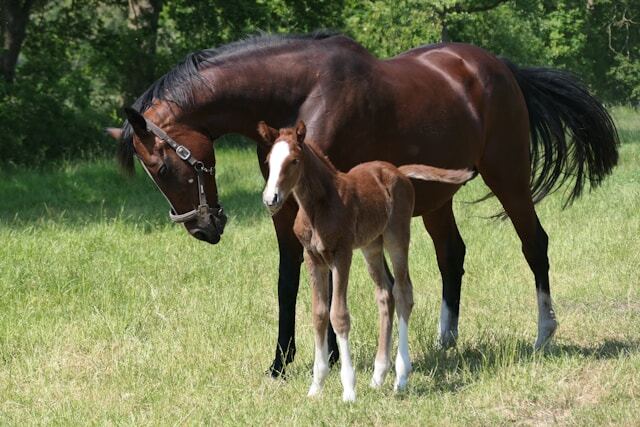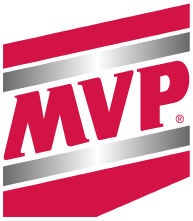The phase of the horse gestation period constitutes a critical time of importance for horse owners and breeders. Understanding the basics of horse pregnancy is essential for ensuring the health and well-being of both mares and foals. Whether you're a seasoned equestrian or a first-time horse owner, learning about the gestation period for horses helps you provide the best care.
In this guide, we’ll answer key questions like what is the gestation period for a horse and how to care for pregnant mares. You’ll also find practical tips for foal birth preparation.
What is Horse Gestation?
The duration when a mare maintains the development of her foal inside her womb is known as horse gestation. Natural fetal development needs active observation to maintain mare health while ensuring foal development.
Horse gestation is known as the most extended period of gestation among domesticated animals, which makes it both unique and rewarding for horse owners to experience.
Consideration of the horse gestation period is essential for owners and breeders to maintain their health and physical strength. It develops the entire planning for the birth of a hale and hearty foal.
How Long is the gestation period for mares?
The gestation period for horses mainly continues between 320 and 370 days, usually about 340 days (approximately 11 months). Nevertheless, the entire process of pregnancy depends on key elements such as the mare’s age, breed, environmental circumstances, and health.
In some cases, mares may carry their foals for up to 12 months. They need to be patient and ready for this extended period.
On the other hand, some studies show that the season can affect the horse's gestation period. Mares bred in spring tend to have slightly shorter pregnancies than in autumn. This is due to the natural breeding cycles and environmental factors.
How to Confirm if a Mare is Pregnant
Confirming pregnancy in a mare is the first step toward ensuring proper care. Here are some reliable methods to determine if your mare is pregnant:
- Ultrasound: Most accurate starting from days 14 to 16 post-breeding.
- Blood Test: Detects pregnancy hormones (eCG) between days 40 and 100.
- Palpation: Manual examination after days 30 to 35.
- Behavioral Signs: Reduced activity, appetite changes, and calm demeanor.
Always consult a veterinarian to choose the most effective method for pregnancy confirmation. Early detection allows for better planning and care throughout the horse gestation period.
Pregnancy Care Tips for Mares

Proper care during the gestation period for horses is crucial for the mare's health and foal development. Here are some essential tips to follow:
1. Balanced Nutrition
Nutritional requirements for pregnant mares show substantial increases throughout their gestational period (particularly the last 3 months of pregnancy). Increased amounts of calcium, phosphorus, protein and certain vitamins and minerals (zinc and copper) to help support overall health and fetal development.
Feeding alfalfa hay can help provide additional calcium which is essential for the developing foal.
2. Regular Veterinary Checkups
During the gestation period of a horse, a regular vet appointment needs to be scheduled during pregnancy to check on both the mare's and the developing foal's health.
Checking the mare regularly allows for the early discovery of health problems before they become severe.
3. Moderate Exercise
Walking and gentle turnout activities help preserve the mare’s blood circulation and body wellness.
Strenuous physical activities should be avoided since they create excess stress for the mare and risk endangering the foal's health.
4. Deworming and Vaccinations
Your vet should guide you in deworming medications and vaccinations since these steps safeguard both foal and mare. This is important in the gestation period of a horse.
The prevention of diseases depends on correct immunization procedures.
5. Comfortable Environment
Create an environment for the mare that eliminates messy conditions and stress, which minimizes pregnancy risks.
The mare needs a peaceful and comfortable environment for her physical health throughout the birthing process.
Preparing for Foal Birth
As the gestation period in horses nears its end, it’s time to prepare for the foal’s arrival. Here’s how to ensure a smooth and successful foaling process:
1. Monitor the Mare
Mares near labor exhibit three main indicators: the growth of the udder followed by the teats turning white and increased body movement.
When the mare displays these indications, she approaches her due date for giving birth.
2. Prepare a Foaling Area
A clean stall with bedding and no loud noises should be prepared ahead of time to welcome the birthing mare.
Clear the area from dangers while creating proper room for the mare and her foal.
3. Gather Essential Supplies
Ensure you have clean towels for the foal, iodine to sterilize the navel, and a list of your vet's contact details prepared.
A prepared environment will reduce the strain during foaling procedures.
4. Know the Stages of Labor
Learning how labor progresses into three stages enables you to determine the proper times when the mare needs help.
Knowing what happens throughout the process enables you to help your mare at the right time.
5. Post-Birth Care
The foal can access colostrum because this special milk provides essential immunity protection.
You should observe both mare and foal to detect any health problems.

Final Note
Understanding what is the gestation period for a horse and ensuring proper care helps promote successful outcomes for mares and foals. Early pregnancy confirmation, attentive care, and foaling preparation ensure a safe and healthy process.
Whether you're an experienced breeder or new to horse care, managing the horse gestation period effectively supports healthy, happy horses.
Trust MedVetPharm for Premium Horse Supplements
Med-Vet Pharmaceuticals specializes in high-quality vitamin supplements to support overall health and well-being. MVP’s carefully formulated products help replenish essential nutrients lost during training, travel, or periods of stress, ensuring your horse stays in peak condition.
For personalized guidance, call us at 833-809-4848 or contact us today!


